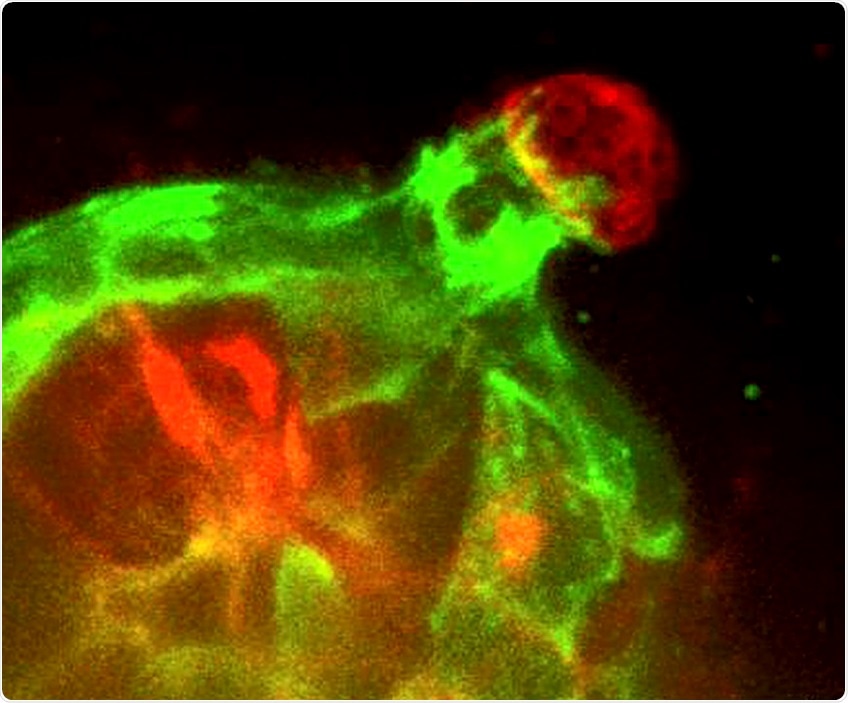Researchers from John Hopkins University School of Medicine have shown in a mouse model that the cell layer surrounding breast milk ducts reaches out and engulfs cancerous cells to stop their spread.
 Real-time 3D confocal time-lapse movie of Twist1-expressing epithelial cells (red) invading into the surrounding extracellular matrix and then being restrained and pulled back by normal myoepithelial cells (green). (Image Credit: Katarina Sirka)
Real-time 3D confocal time-lapse movie of Twist1-expressing epithelial cells (red) invading into the surrounding extracellular matrix and then being restrained and pulled back by normal myoepithelial cells (green). (Image Credit: Katarina Sirka)
The finding, which was recently published the Journal of Cell Biology, contradicts previous studies suggesting that this cell layer, called the myoepithelium, serves as a stationary barrier to invading cancer cells; instead it serves as an active defense against cancer spread.
Understanding how cancer cells are contained could eventually help us develop ways to predict a person's individualized risk of metastasis.”
Andrew Ewald, Study Author
Most breast cancers originate in cells lining the inside of milk ducts and those cells are surrounded by the myoepithelium, which contracts and moves milk along the ducts when a baby is nursing.
In the clinic, this myoepithelial layer is used to determine whether a cancer is contained or invasive, with the cancer being classed as invasive once cancer cells breach the layer.
This invasive carcinoma is associated with an increased risk of recurrence and the need for more aggressive therapy.
Ewald and colleagues engineered cells taken from the breast ducts of mice to make them produce a protein called Twist1, which is known to change gene expression and is associated with the spread of various types of cancer.
They found that when invasive Twsit1 cells breached the myoepithelium, they were “grabbed” by myoepithelial cells and pulled back into the duct lining in 92% of cases.
These findings establish the novel concept of the myoepithelium as a dynamic barrier to cell escape, rather than acting as a stone wall as it was speculated before.”
Katarina Sirka, Co-author
Ewald and colleagues now intend to investigate the mechanisms that trigger the myoepithelium to react so dynamically, as well as what causes it to stop protecting against cancer spread when a cancer becomes invasive.
Scientists Discover a Dynamic Cellular Defense Against Breast Cancer Invasion